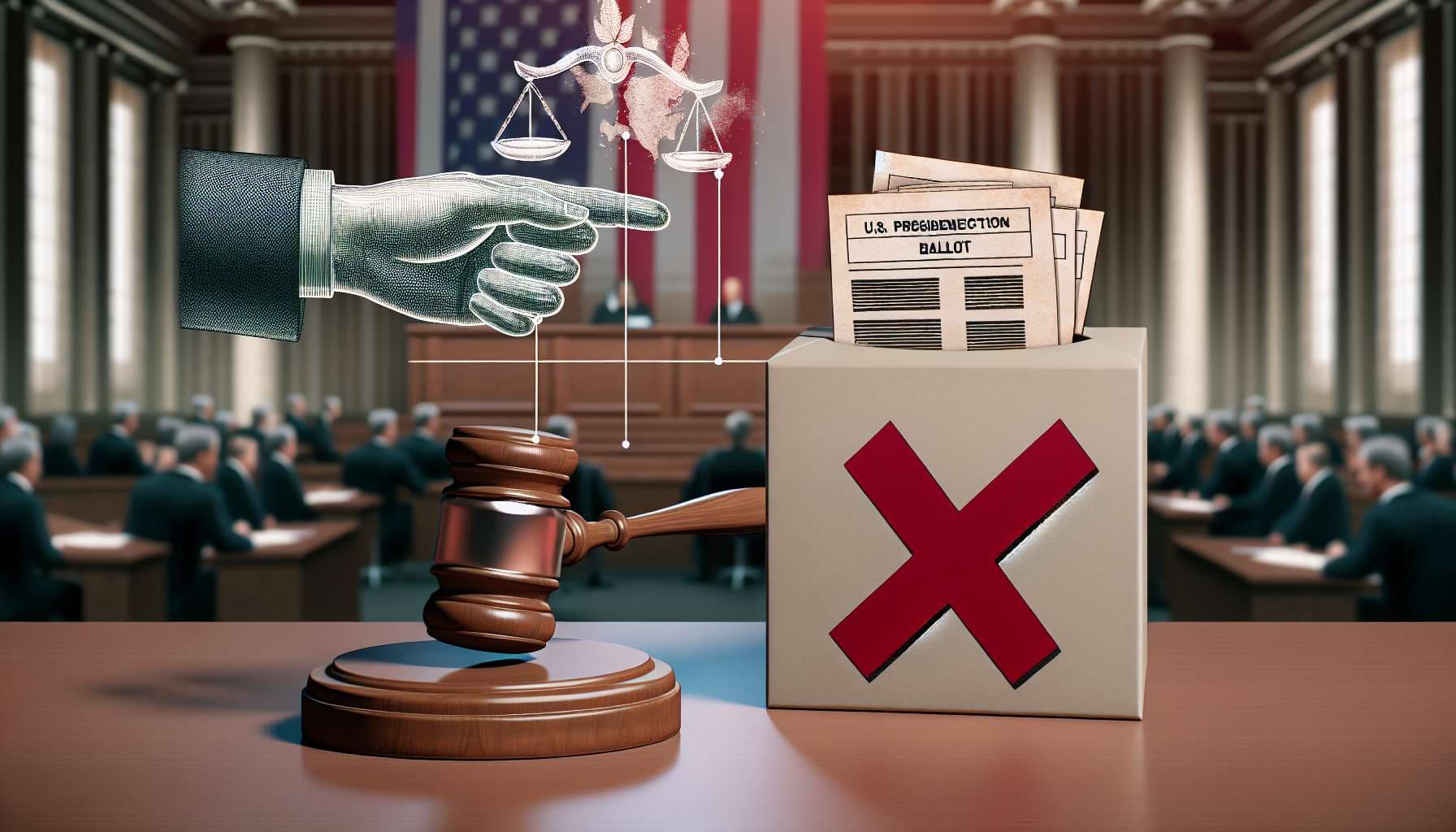
Trump's legal team filed their reply brief on Feb 5th 2024. In their petitioner briefs his lawyers have outlined five arguments for why the former president should not be disqualified from the ballot under Amdt14.S3.1 of the US Constitution.
BRIEF FOR THE PETITIONER
REPLY BRIEF FOR THE PETITIONER
ORAL ARGUMENTS
https://www.youtube.com/live/MKUr9uOZCzc?si=RLJ4uBNtRypXR4ns&t=702
Which of these arguments will be the cited by members of SCOTUS as their reason for voting to keep Trump on the ballot?
Resolves YES for any argument(s) cited and supported by majority or dissenting opinions. OTHER only resolves YES if any opinions in favor of keeping Trump on the ballot and reversing the Colorado decision reference comprehensive arguments not listed in the linked briefs.
🏅 Top traders
| # | Trader | Total profit |
|---|---|---|
| 1 | Ṁ101 | |
| 2 | Ṁ79 | |
| 3 | Ṁ48 | |
| 4 | Ṁ46 | |
| 5 | Ṁ35 |
People are also trading
@becauseyoudo Consider the dissenting opinion of the 3 judges who argue that the ruling shouldn't have said that section 3 is not self-executing, but still support the ruling on the grounds that it is not up to the states to decide. If the only argument in the majority opinion is about self-execution, why do they agree? I think the argument about the power of the states is a distinct argument
@Shump There really aren't a lot of other arguments they all seem to support the arguments presented under the heading "SECTION 3 CANNOT BE USED TO DENY PRESIDENT TRUMP ACCESS TO THE BALLOT". It's the argument for the limited power that states have to restrict federal elections. So I'm resolving OTHER as NO.
"The only other plausible constitutional sources of such a delegation are the Elections and Electors Clauses, which authorize States to conduct and regulate congressional and Presidential elections, respectively. See Art. I, §4, cl. 1; Art. II, §1, cl. 2.1 But there is little reason to think that these Clauses implicitly authorize the States to enforce Section 3 against federal officeholders and candidates. Granting the States that authority would invert the Fourteenth Amendment’s rebalancing of federal and state power"
This reference to the Elector's Clause is used to support the primary argument of SECTION 3 SHOULD BE ENFORCED ONLY THROUGH CONGRESS’S CHOSEN METHODS OF ENFORCEMENT. Resolves NO.
"SECTION 3 CANNOT BE USED TO DENY PRESIDENT TRUMP ACCESS TO THE BALLOT" this argument mostly centered around "U.S. Term Limits, Inc. v. Thornton" which is cited by the majority opinion in section B as support for the notion of limited state power in qualifying candidates for federal office. Resolving as YES.
I believe out of the listed options, the only one that should resolve YES is, "SECTION 3 SHOULD BE ENFORCED ONLY THROUGH CONGRESS’S CHOSEN METHODS OF ENFORCEMENT," right? Not sure about "Other", though. Does the argument that individual states aren't allowed to decide eligibility in federal elections count as an "Other" argument? I think it probably should since not all justices agreed with the "Only Congress can enforce Section 3," but they did all agree that the states can't enforce it.
@PlasmaBallin "SECTION 3 SHOULD BE ENFORCED ONLY THROUGH CONGRESS’S CHOSEN METHODS OF ENFORCEMENT" is almost defiantly a YES. Still not sure about OTHER. I noticed they also reference the "Electors Clause" argument but I'm not really going to have a chance to look at it until much later tonight.
@becauseyoudo I think there is an argument for "THE COLORADO SUPREME COURT VIOLATED...". The supreme court didn't use such strong wording, but it basically said that the Colorado Supreme Court, and all other state-specific bodies, do not have the authority to decide on the application of section 3. I beliebe they did mention the electors clause, and said it didn't grant the states this power.
I think the arguments that states don't have the authority to decide this is a separate argument, as evidenced by the fact that 3 judged concurred on it but dissented on the argument about congress enforcing section 3. So either that counts as the colorado supreme court thing or as other.
Here's the opinion. I'll read through it and resolve the market tonight.
Trump has already made the opposite argument and prevailed:
THE PEOPLE OF THE STATE OF NEW YORK,
DONALD J. TRUMP, Defendant.
…
POINT I: THE PRESIDENT IS AN OFFICER OF THE UNITED STATES WHO CAN REMOVE CASES TO FEDERAL COURTThe President of the United States is an “officer . . . of the United States” under 28 U.S.C. § 1442(a)(1). DANY’s argument to the contrary is unconvincing and the Court should reject it.
👍
@MichaelMcMullen You're right. Unless someone has an objection to this, I'll remove the N/A condition.
@MartinRandall Yes. If they cite the argument(s) and state their opinions in support of the argument(s).
I guess "other" is the justices using an argument not in the reply brief?
@PlasmaBallin Oh wait, so any dissenting opinion saying "Trump didn't do an insurrection" will make this YES? :/